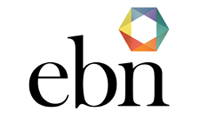In the last couple of weeks, I have had some conversations with people who are relatively new to business (less than 2 years) and who were finding it all quite difficult. One said, “When does it get easier?” Another said, “I’m always working” and another said, “It’s just so hard to juggle everything that needs doing”. All these are valid points about owning a business and I certainly have thought them all in the first couple of years. So, for each one we spent some time talking through their issues, starting with their comments.
Before I look at this though, I want to start with how it was for me when I started my first business 25 years ago. I left my corporate job because I was not having fun. I didn’t know what I wanted to do but I did know I didn’t want to stay doing what I was doing and had done for nearly 24 years.
What to do? Well, what I did was talk to friends and ask them what I should do. In fact, I networked!
I also realised 3 things:
1. I needed some “Rules to live by”
2. I didn’t, and couldn’t, know everything
3. I had skills which people would pay to use.
How did that go?
1 The rules I set were:
- Whatever I did had to be fun, otherwise I could stay employed not having fun but getting a very good salary plus bonus etc.
- I would never do anything I didn’t want to do; with anyone I didn’t want to do it with. I would choose how my business grew and who I worked with and for.
- I would never go back to working full-time and permanently for anyone ever again. So, in the first year when money was scarce, I did part time and temporary jobs that added to my skills for example I worked in a call centre doing cold calling.
2. I networked and found people who enjoyed stuff like accounts, IT, HR, marketing, admin etc. Things which I didn’t want to do. This meant that I could focus on building my business, getting and doing the work, which were things I did want to do.
3. I was very well trained when I worked in the corporate world. I managed a large budget and two large teams, and I had some national responsibilities. I saw the worth in what I had been trained to do and knew that most, if not all, were transferable skills.
These were my rules and they worked for me.
Now let’s look at the three observations I started with:
“When does it get easier” Whatever the size of your company there will be difficult times and these don’t come in a linear fashion, because it sometimes seems just when you think things are going well you hit a bump. This, for me, is part of the excitement, the challenge, and sometimes this can be frustrating but on each occasion I learn. It does become easier with more experience but that can be said of anything I think.
“I’m always working” When you run your own business this is always true. I now have a rule that I don’t work after 6.30 and never at weekends. But by this I mean physical work, so I never stop working because my brain may have a lightbulb moment and I may need to give it some time to develop the idea, and this might be after 6.30 or during a weekend. Of course, I now have a business where people rarely contact me and say “I need to network now” which was not true of previous businesses I’ve had, where customers would need something urgently, e.g. a last-minute corporate lunch that needed catering. But with the customer who did this fairly regularly I came to the agreement that I would always sort it for her but she would have no choice of what was provided. This meant I had a degree of control. Others I would not take the booking but pass then to another catering company who were happy to have that lack of control.
“It’s just so hard to juggle everything that needs doing”. Yes it is, but by developing suppliers you can focus on what you do best, things that make you money to pay suppliers and make a profit.
Owning a business is not for everyone but I love it: the challenges, the adventures, the successes. I could never go back to being employed, and as my beloved said once “You never did bosses well!”
The three people I started with are all deciding whether they should go back into employment. My question to each was and would always be: are you having any fun? Because if you are not having fun, stop doing it. Go and get a job, and if that is not fun at least you have a regular salary that you can use to have fun outside of work.
What are your thoughts?
To help build our relationship, please accept my gift of Top 20 networking tips. Just complete the form to download your copy.
Glenys












Recent Comments